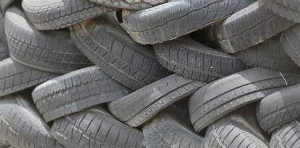Property cat limit purchased up $35-40bn in H1 2024, further momentum expected: GC

Reinsurance broker Guy Carpenter expects demand momentum in property catastrophe reinsurance buying to persist, after an estimated $35 billion to $40 billion in new limit was already purchased in 2024, with more than 60% of property catastrophe contracts including expanded limit in North America.
Increased demand for property catastrophe reinsurance protection, even in a still hard market environment such as this, is reflective of the inflationary and loss pressures that have been seen, of the learned-adjustments now being made in reaction to the reset seen in attachments and coverage terms, and underscores the fact this hard market has not always been a typical one.
Reporting this morning on its estimate for additional global property catastrophe reinsurance limit that has been purchased, Guy Carpenter said that more than 50% of the increased limit originated in North America across a wide range of companies.
Increased traditional reinsurance capital, generated through performance and retained earnings and estimated around $35 billion, soaked up a significant amount of this, it seems.
With the broker saying that, “The majority of additional capacity was provided by traditional reinsurers while insurance-linked securities (ILS) impact was primarily via catastrophe bonds and in some cases investor support of traditional reinsurers.”
This is another factor that has helped to keep the hard market more balanced this time around, the fact ILS capital is increasingly focused higher-up and on the securitized product, has helped to sustain the environment for traditional reinsurers.
As ILS capital starts to rebuild in other areas of the tower and across collateralized strategies, it’s going to be interesting to see how that changes the market dynamic, if at all.
Risk-adjusted pricing trended down by the middle of the year, as reflected in the flattening of Guy Carpenter’s US Property Catastrophe Rate-on-Line Index.
Middle and upper-layers saw the most pressure on price, which the broker noted has enabled some to purchase additional protection.
The $35 billion to $40 billion in additional property catastrophe reinsurance demand equates to 5% to 10% of catastrophe capacity purchased, including cat bonds, depending on the region, Guy Carpenter explained.
The broker said, “Additional demand was diversified with a significant portion of cedents buying some level of additional limit. In North America, over 60% of property catastrophe contracts included expanded limit with the top 20% purchasing in excess of USD 100 million of additional limit.”
A more favourable environment for buyers has been seen, which has allowed them to evaluate increasing their levels of property catastrophe reinsurance, Guy Carpenter said.
The broker went on to explain that, “With minimal movement in net limits purchased over the past couple of years during more difficult market conditions, there was material interest in additional limit coming into 2024. Significant inflationary pressure grew underlying valuations and, therefore, cedents’ exposures to loss.
“Greater market stability, and moderating pricing in a number of segments, provided cedents with better ability to budget for additional levels of coverage.”
For us, there’s another factor in how US insurers in particular have been adapting to the hardening and then hard reinsurance market.
They have learned how to leverage their own capital resources better, to manage higher retentions and tougher terms, leveraging alternative capital where most appropriate, better budgeting for volatility and attrition lower-down, and have more rate coming through on the inwards side that is offsetting the higher reinsurance costs they have seen, to a degree.
All of this and more, including an increasingly sophisticated use of catastrophe bonds and insurance-linked securities (ILS) over the last few years, has been helping large US P&C carriers to better address the reinsurance markets and optimise their renewals, something that is likely to continue and could continue to drive more demand in certain areas of towers.
Guy Carpenter too anticipates more property catastrophe reinsurance demand into 2025.
“As the market looks ahead to 2025, Guy Carpenter expects there will be additional factors providing further momentum for increased demand,” the broker said.
Guy Carpenter highlights four key factors that will affect buying decisions over the next 12 months, which are: continued (albeit lesser) increases in property valuations; growth in overall exposure; model version changes; and
a focus on continued risk mitigation.








